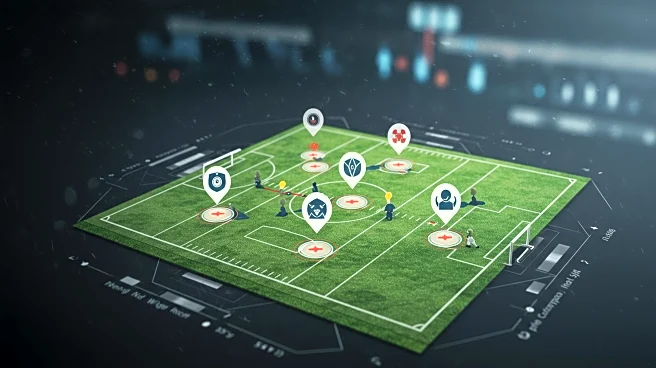What's Happening?
A recent fantasy football mock draft conducted using FantasyPros' Draft Wizard focused on a half-PPR format, involving 12 teams. The draft emphasized strategic player selection based on average draft position (ADP) rather than expert consensus rankings (ECR), aiming to better predict outcomes in casual leagues. Key selections included Nico Collins, De'Von Achane, and Derrick Henry, with considerations for player age and role in PPR formats. The draft also highlighted the potential impact of injuries and team dynamics on player value, such as Davante Adams' situation with Matthew Stafford's injury and Omarion Hampton's opportunity due to Najee Harris' uncertain availability.
Why It's Important?
Fantasy football drafts are crucial for setting the foundation of a team's success throughout the season. The strategic choices made in this mock draft reflect broader trends in player valuation, particularly the emphasis on ADP over ECR for casual leagues. This approach can influence how fantasy managers prepare for their drafts, potentially leading to more competitive and balanced leagues. Additionally, the focus on player roles and injury impacts underscores the importance of staying informed about real-world NFL developments, which can significantly affect fantasy outcomes.
What's Next?
As the NFL season approaches, fantasy managers will continue to monitor player performances and team news to adjust their strategies. The insights from this mock draft may guide future decisions, especially regarding player selections and trades. Managers will need to stay vigilant about injury reports and team dynamics to optimize their rosters. The evolving landscape of player availability and team strategies will likely lead to further adjustments in draft approaches and in-season management.
Beyond the Headlines
The mock draft highlights deeper implications for fantasy football, such as the ethical considerations of player valuation based on injuries and suspensions. It also reflects cultural shifts in how fantasy sports are perceived and played, with increasing emphasis on data-driven decision-making. The draft serves as a microcosm of broader trends in sports analytics and the growing sophistication of fantasy sports as a competitive and recreational activity.










